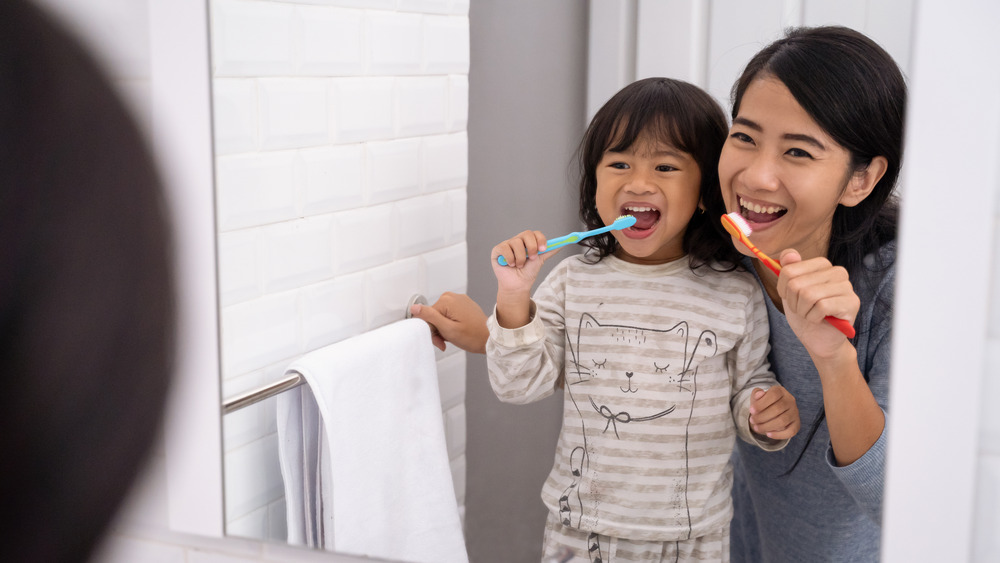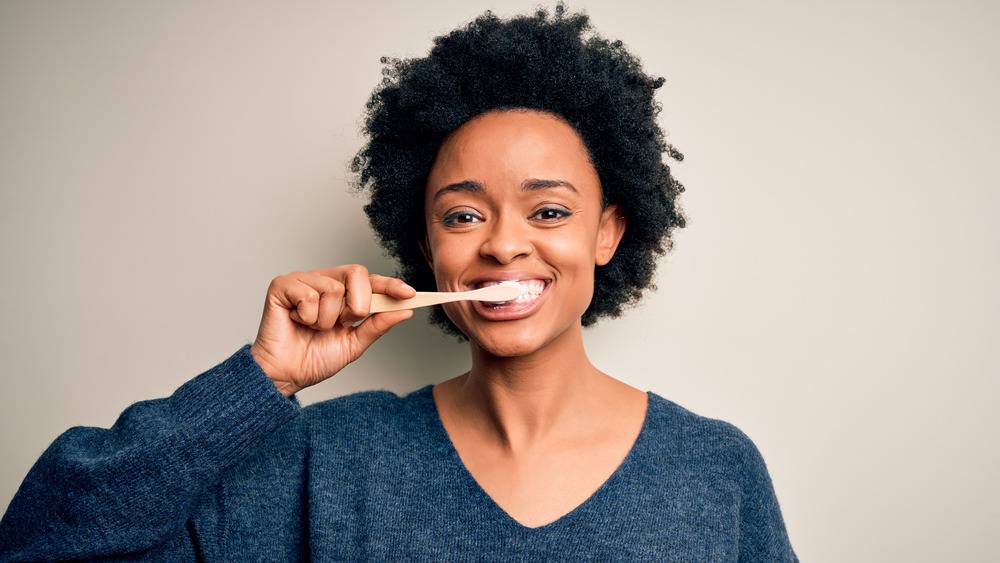Surprising Side Effects Of Brushing Your Teeth Too Much
Brushing our teeth in the morning and before we go to bed at night is a habit most of us do without even having to think about it. And if by chance you do forget a brushing, your stinky breath or the food caught in your teeth can be used as a welcome reminder. Most of us know that brushing our teeth is essential to overall good oral hygiene, but there can be too much of a good thing. Here's what happens when you brush your teeth too much.
According to SF Perio and Implants, a periodontist office in San Francisco, California, a daily and nightly tooth brushing habit is essential for both healthy teeth and healthy gums. But too much brushing, also known as "toothbrush abrasion," can cause sensitive teeth and receding gums. If you're suddenly unsure if you are brushing your teeth too often, there are a few signs to watch out for. If your toothbrush is suddenly sporting splayed bristles, or your gums have become swollen or are bleeding after cleaning them, then it may be a sign you are brushing them too often.
Brushing too hard can expose nerve endings
Brushing too hard is just as bad as brushing too often. When you brush too hard, you can wear down the outer layer of your teeth, which is also known as enamel. As Healthline states, if you scrub away that protective enamel layer around your teeth, you will expose a layer of dentin, a non-sealed layer that has tiny holes leading to nerve endings. If these nerve endings are exposed without the protection of enamel and dentin, then you are opening up your teeth to becoming extremely sensitive to an array of outside offenders.
Matt Messina, D.D.S., a dentist from Fairview Park, Ohio explains to WebMD, why brushing too hard can unconsciously happen. "I think one of the biggest issues that people have is that they try to scrub their teeth too hard. They feel like if they really don't go at the teeth like they're trying to clean the grout in their bathroom tile, that they're not doing the right job," he shares. H also says that the ideal way to change your mentality on this is to think of brushing your teeth as a "massage" rather than a "scrubbing."
So how often and how long should we be brushing or "massaging" our teeth? Healthline recommends twice a day for two minutes each time. That should take care of any bad breath or trapped food issues! Anything extra could be detrimental to your oral hygiene, but always talk to your dentist about what's right for you.


